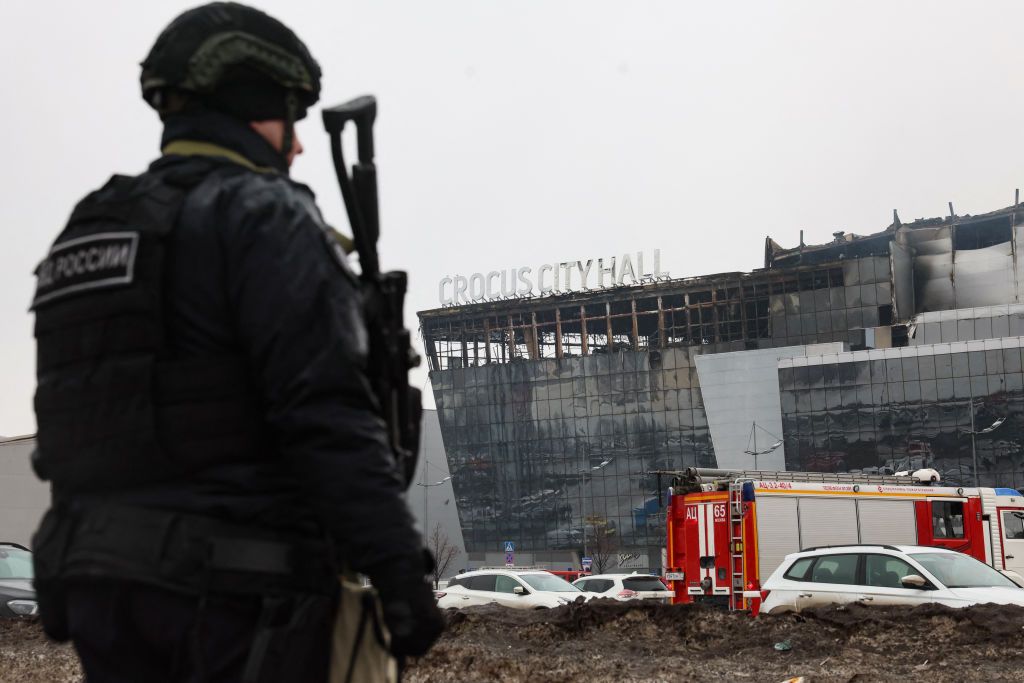Another Tajik citizen, Dzhumakhon Kurbonov, has been detained in connection with the terrorist attack at Crocus City Hall on March 22, as per a Moscow court ruling on April 27. Kurbonov is suspected of providing financial support and telecommunications means to individuals involved in the attack. The court has ordered him to remain in detention until at least May 22. It was reported that Kurbonov was living in a Moscow hostel and working unofficially in Russia. The court hearing was held behind closed doors, and it was revealed that a Tajik citizen born in 2003 had been previously detained as part of the ongoing investigation.
The attack at Crocus City Hall in Krasnogorsk, a Moscow suburb, was perpetrated by several gunmen on March 22, resulting in the deaths of over 145 people and injuring more than 500 others. The Islamic State (ISIS) claimed responsibility for the attack shortly after. Over half of the suspects detained in relation to the attack are from Tajikistan, with four accused of directly participating in the incident. Reports indicated that these suspects showed signs of abuse at the hands of Russian authorities. Following the attack, there was a surge in xenophobic incidents and instances of Central Asians leaving Russia due to fears of reprisals and increased racism.
The Tajik Foreign Minister, Sirojiddin Muhriddin, criticized the treatment of the Moscow attack suspects and the crackdown on Tajiks in Russia. He condemned the use of torture and bodily mutilation, stating that it is unacceptable. Millions of Tajiks and other Central Asians reside or work in Russia, with remittances from migrant workers contributing significantly to Tajikistan’s GDP. In 2022, the World Bank estimated that as much as 50% of Tajikistan’s GDP stemmed from remittances.
The ongoing investigation into the Crocus City Hall terrorist attack has resulted in the detention of multiple Tajik citizens who are suspected of involvement. Reports have emerged of alleged abuse and torture inflicted on the suspects by Russian authorities. As a significant number of Tajiks and Central Asians live and work in Russia, the crackdown and xenophobic incidents following the attack have raised concerns about the safety and treatment of these individuals. The Tajik Foreign Minister’s condemnation of torture underscores the need for fair treatment and justice for all individuals involved in the investigation.
The impact of the Moscow attack and subsequent crackdown on Tajiks in Russia goes beyond the immediate security concerns. The incident has highlighted issues of discrimination, abuse, and xenophobia faced by Central Asian migrant workers in the country. As Tajikistan heavily relies on remittances from its citizens working abroad, any disruptions in the relationship between Russia and Tajik migrant workers could have significant economic implications for the country. It is crucial for both countries to address these issues through cooperation and respect for human rights, ensuring the safety and well-being of all individuals involved.
Support for independent journalism in Ukraine is essential in shedding light on events like the Moscow attack and its aftermath. By providing accurate and unbiased reporting, journalists can bring attention to human rights abuses, discrimination, and injustices faced by individuals caught up in such incidents. It is through a commitment to transparency and accountability that progress can be made in addressing the root causes of terrorism, xenophobia, and the mistreatment of migrant workers. Joining the fight to support independent journalism in Ukraine and beyond is an important step in promoting a more just and equitable society for all.















